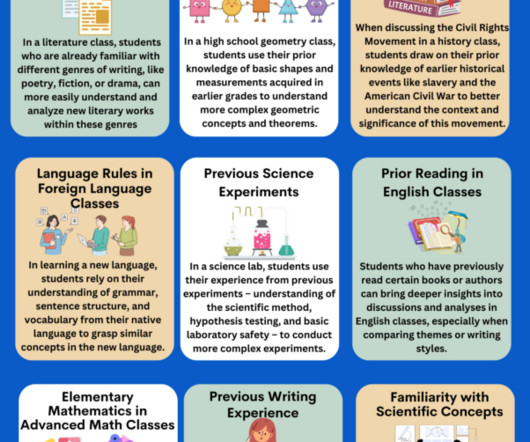What Is Prior Knowledge and Why it Matters?
Educational Technology and Mobile Learning
DECEMBER 23, 2023
Prior knowledge is one of the key concept in educational research that fundamentally reshape our understanding of how learning occurs. discuss two main types of prior knowledge which I want to draw your attention to: declarative prior knowledge and procedural prior knowledge.















Let's personalize your content